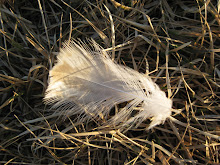That uphill ride was good for my imagination. I found it was much easier on the thighs and lungs if I let my mind drift somewhere else. Pedaling downhill was another matter. To begin with, I didn’t pedal, I just coasted, sometimes with my feet off to the sides, other times no-handed. Downhill was when the daredevil side of me came out. Zoe was always amazed when I arrived in one piece. She was usually waiting for me on the porch to let her in because she only lived a block away and actually liked getting up before the sun rose.
“Hello? Earth to Minerva. You’re supposed to be in charge here, remember,” she said to me.
“The creamers are empty again and you forgot to tell me to fill them.”
“Oh, sorry, right.” I came out of my reverie much faster than I wanted to into the jangle of jazz and caffeinated nerves that was Café Chaos, to face a bemused customer, although he may have actually been annoyed that the creamers were yet again empty. Bemused may have been an optimistic assessment on my part, but my expertise at avoidance put him at ease as I filled the creamers myself. I still hadn’t gotten used to being a manager after years of being a peon, but somehow when I’d applied for this lastest in a long string of coffeehouse jobs I’d ended up an authority figure. Granted, my staff consisted of one wholeheartedly bemused twenty-two year old art-school graduate named Zoe, but it was still quite a step up according to some people’s standards, namely my parents who where thrilled at how I was rising up in the world. I’d worked in coffeehouses so long we weren’t called baristas when I started out, we were counter help. Even though I thought the new title was pretentious I didn’t mind since baristas got way more tips.
“Uh, Zoe, can you brew some more Monsoon Malabar?” I told her. Some of the new names were absurd, too, but I had to admit it was more fun than just saying boring old Colombian all day long, although I’m sure Colombians aren’t boring at all. I’d actually heard it was a great country to visit these days now that the crime rate was somewhat down, although I had met a guy who’d told me he’d been stabbed in the back by guerillas with a machete when he was hiking in the jungle. But he’d survived and had the time of his life when he finally made it to Cartagena. Showed me the photos on his digital camera. The glare of the white sand hurt my eyes so much I had to stay out of the sun for a couple of days, which was unusual for me. I’d spent my whole life trying to avoid bad weather, migrating from north to south with the seasons like a brightly colored bird.
“Yes, boss,” Zoe said. Not only was she wholeheartedly bemused, she was wholeheartedly ironic, like most of her generation. She was Y to my X. We Generation X-ers had missed out on the bemused part, which I was kind of mad about. I think I would have had a lot easier time if I’d been able to laugh at myself and this entire, ridiculous world. I secretly thought she should be my boss because I could tell I had a lot to learn from her, but the owner had been thrilled when an “adult” had applied for the job. Those quotation marks around “adult” are ironic because even though I’m forty years old, I’m far from grown up. Just ask my mother and father or anyone else who’s watched me flounder through life for the past twenty years.
“You go back to daydreaming. That’s more important than any old monsoon.” Zoe and I had quickly developed a rapport based on obscure associations that nobody else understood unless they’d worked in a twenty-first century coffeehouse.
“Right, good job,” I told her. “I trust you.” That was saying a lot for me. I didn’t trust many people. I drifted back into that bubble where for one whole summer the neighbors’ son and I, separated by age, but somehow closer than anyone else on our oak-shaded block, stretched out on our twin beds listening to green acorns drop, suspended in the sadness spun by those two weary songs he played over and over again on his record player, lifting up the needle with the one finger he had the energy to move.
I thought he was an old man, but he was probably all of nineteen, which now that I’m 40 seems absurdly young. How could he have known all that he did at that age? Or maybe, like me, he was born knowing and had to forget it all.
At the end of the summer he disappeared with my childhood. To everyone else I still looked like a four year old kid running barefoot through clover in my daisy-print party dress, playing red light, green light with the other kids on the front lawns of the neighborhood. I came into bed when my parents called me even though it was still light out. I let them tuck me into bed and kiss me good night, but under the covers where I listened to the crickets chirp and then go suddenly silent, watching the moon move across the empty walls of my room, my childhood was gone. I don’t know how to explain it. One day I was dancing in the sun, the next I was hiding in the shadows, lost on the dark side of the moon.
“Where do you go when you get that look on your face?” Zoe asked me as we took out the trash just before we went home.
“Nowhere,” I answered. I’d been lost so long, I didn’t want to be found.
Subscribe to:
Post Comments (Atom)

No comments:
Post a Comment